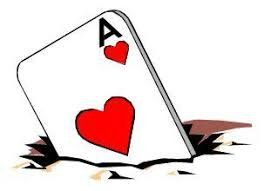Blackjack Ace Tracking: Play 21 like a pro without counting cards.
 There are many misconceptions in the gambling world surrounding the game of blackjack. Some believe that without card counting, blackjack isn’t worth playing. Some say that counting cards will give you an edge over the house, guaranteeing a long-term winning streak. These are both myths, of course.
There are many misconceptions in the gambling world surrounding the game of blackjack. Some believe that without card counting, blackjack isn’t worth playing. Some say that counting cards will give you an edge over the house, guaranteeing a long-term winning streak. These are both myths, of course.
Not only is card counting relatively easy, it may not be all it’s cracked up to be. Yes, it can sheer a few fractional scraps off the house edge. But most game rules counter its effects enough to keep the favor with the house. And volatility will always play a strong enough roll that anyone, with or without counting cards, can have a good or bad day.
So why waste your time doing it? The truth is, there’s a much easier way to increase your ROI. Instead of keeping your focus on every single card that turns face up, just keep track of the Aces. After all, they are every blackjack player’s best friend!
The Value of Blackjack Ace Tracking
The concept here is to know how many Aces are left in the shoe, and approximately what percentage of the shoe is still in play. It’s not difficult at all, requiring only the simplest math skills – the stuff you learned in grade school.
Let’s say there are 8 decks in the shoe. That means there are 32 Aces in a full shoe of 416 cards, representing 1/14th of all the cards. That means that, from the start, you have a 1 in 14 chance of being dealt an Ace. Still with me? Okay, good.
Now, let’s assume you’ve been playing for a short while now. The shoe appears to be about 25% spent. Without counting, we know that leaves about 300 cards remaining. You’ve only seen 3 Aces in that period of time – far less than the 25% of all Aces in the deck (32/4 = 8). So we know that Aces are going to be more prevalent right now.
If you are good with mental math, you can work that out to about a 1 in 10 chance of being dealt an Ace now (300 cards / 29 Aces = 10.34). Even without quick calculations, you can figure whether the odds are higher or lower.
If you have seen more than 25% (8) of the Aces in the deck – perhaps 10 of them came across the felt in that time – you’ll know the odds of being dealt an Ace are lower. This obviously doesn’t fare as well for your game, probability-wise.
Why Aces are So Important
The Ace is by far the blackjack player’s best friend; their ‘ace in the hole‘, if you don’t mind the obnoxious pun. Without them, you cannot be dealt a natural blackjack. It is these natural blackjacks that give players the biggest advantage, paying out at a rate of 3:2. Knowing that aces are heavy in the shoe gives you a heads up to increase your bet size, since the odds of being dealt a blackjack are higher, the same as a shoe low in Aces should induce smaller bets.
Remember, there is only 1 Ace for every 14 cards, but there are 4 cards per 14 that can pair with the Ace to make a blackjack. Thus the Ace is the most vital. When dealt an Ace, there is (at full shoe size) a 4 in 13 chance remaining that a blackjack will be dealt. That’s nearly a 1 in 3 chance.
Of course, you won’t know if you’re going to be dealt that Ace before you place a bet. Hence, the strategy of tracking Aces empowers players with the ability to better predict when an Ace will or won’t come.
It’s actually incredibly similar to the process, accuracy and edge-reduction of counting cards, but much easier to pull off, requiring less mental fortitude and attention. That means you’re less likely to be called out for doing it at a land-based casino, which as many of you know can either get you kicked out, or cause the dealer to start shuffling the shoe long before reaching a depth of 50%, when tracking aces becomes the most advantageous for players.











